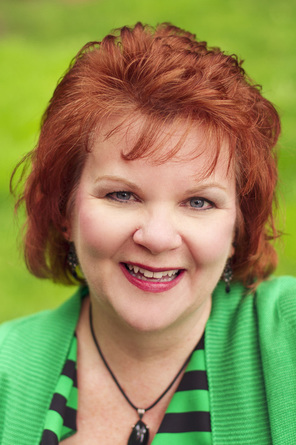 Featuring guest author, Mesu Andrews Does it surprise you that historians and biblical scholars alike question the dates of the Exodus? Some choose to place Moses in the mid-1400’s BC while others place him in the mid-1200’s with the famous Pharaoh Ramesses and Queen Nefertiry. After much wailing and gnashing of teeth, I settled on the Ramesses dating. I mean, who can argue with Cecil B. DeMilles and DreamWorks, right? Perhaps a bit more convincing was the relief (hieroglyphs) in the west wing of the Great Hypostyle Hall (Karnak Temple Complex, Egypt) in which Pharaoh Seti is pictured with a mysterious military officer known only as Mehy. Though the Egyptians-of-old were meticulous record-keepers, Egyptologists have found no genealogy or historical record regarding Mehy. Even more intriguing—the Hypostyle relief shows Pharaoh Ramesses—Egypt’s longest reigning king—made an attempt to replace Mehy’s image with his own. Why had Ramesses wanted to wipe out the record of Mehy in Egypt? I believe it was because Ramesses discovered Mehy was Hebrew—and that Hebrew was Moses. Deeper research uncovered the more precise Exodus dating around 1250 BC. Ramesses ruled Egypt ca.1279-1213 BC. Based on historical accounts of his ascension age, he was approximately fifty-three when the Israelites left Egypt. Exodus 7:7 tells us that Moses was eighty years old when he returned as God’s chosen leader to free the Israelites. Have Cecil B. DeMilles, DreamWorks, Exodus: Gods and Kings been lying to us about Moses’s best friend? Say it ain’t so! Ramesses and Moses likely would not have been close in age or reared as brothers as the movies depict. In fact, if Moses was indeed Mehy, Seti’s military officer, it’s more likely that Moses and Seti were the best friends and reared together as brothers. Which could also explain Ramesses’ jealous attempts to replace the mysterious officer’s image from the relief in Hypostyle Hall. Though neither historical nor biblical records tell us Moses’s Egyptian name, it’s been fun to imagine what Moses’s life might have been like as a true prince of Egypt who was later God’s chosen deliverer. I hope you’ll enjoy the full account of Moses from infancy to the Exodus in my two-book series: The Pharaoh’s Daughter and Miriam.
0 Comments
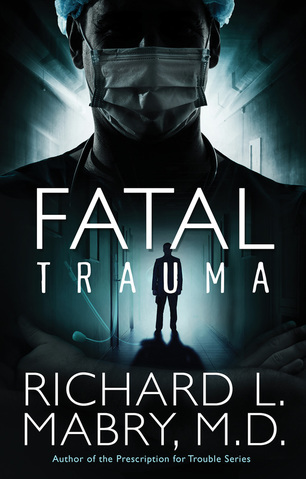 Interview by Brock Eastman Featuring Richard L. Mabry When Dr. Mark Baker and Nurse Kelly Atkinson are held at the mercy of a dangerous gunman, the lives of every emergency room patient are at stake. At the end of the evening three men are dead. One is a police officer whose life couldn't be saved despite Mark's best efforts. The other two are members of a drug cartel. After the standoff, the killing is not over. When the drug cartel loses members, revenge is not far behind. Facing an adversary whose desires are dark and efforts are ruthless, Mark finds himself under suspicion as a killer, yet still a potential victim. When he turns to his high school sweetheart, attorney Gwen Woodruff, for help, Kelly helplessly looks on, hiding her own feelings for Mark. Three questions remain: Who is the shooter? Who will the next victim be? And can Mark prove his innocence before the gun turns on him? "Fatal Trauma asks big questions of faith, priorities, and meaning, all within the context of a tightly crafted medical drama." -Steven James, best-selling author of Placebo and Checkmate Brock: How did you come up with the idea for this book? Richard: It began with a conversation, discussing the time a physician whom I was privileged to help train confronted a man with a gun in a hospital emergency room. Since Mexican drug cartels have extended their influence into our area of Texas, it seemed natural for me to add that to the idea stirring in my head. Thus, Fatal Trauma was born. Brock: Tell us about the main characters. Who are they? What makes them unique? Richard: Dr. Mark Baker is an emergency room physician. He knows it’s time to settle down, but he isn’t sure he’s met a woman who’s “the one”—until he sees her with a gun to her head. Nurse Kelly Atkinson has already decided that Mark is her “one,” and when they both seem to be just a trigger’s pull from death, she’s more certain than ever. Brock: Give us one fact about each main character that no one else knows. Richard: Mark had a year of surgery residency before he decided he wanted to treat “a little bit of everything.” That’s why he’s an ER doctor. Rachel’s parents are divorced, but unlike many such situations, their separation didn’t drive her away from Christianity—it brought her closer. Brock: In three words, what is this book about? Richard: Faith under fire. Brock: Do you outline the entire book before starting, or do you write as you go and let the characters take control of the story? Richard: I’m a seat-of-the-pants writer. I start with a premise or hook. Then I populate the story, although I learn more about the characters as the novel develops. I figure out something to keep the story moving and prevent a sagging middle, then craft what I hope will be a surprising and satisfying ending. Brock: How do you believe this story relates to the lives of readers? Richard: I don’t think my readers are ever going to go through the trials of my two protagonists…at least, I hope not. But what I’d like them to realize, after they finish reading Fatal Trauma, is that even when things look bad God is with them. He doesn’t cause bad things to happen, but He’ll stand by us as we get through them. Brock: What is your favorite genre to write for? Richard: I tried writing in a number of genres before I finally settled on medical suspense. Then, because there’s a bit of romance in all my books and they have a Christian point-of-view, I adopted the tag, “Medical suspense with heart.” Brock: Are your novels part of a series or are they freestanding? Richard: My novels are totally freestanding, and can be read in any order. I think this is harder for an author than writing a series, since in earlier books they will have created a locale and characters. Nevertheless, I’ve had numerous readers (and publishers) tell me they prefer freestanding novels. Brock: Any certain research required for the book, or is it all from your imagination? Richard: People think that, because I’m a physician, I should be able to write medical scenarios without having to do any research, but that’s not right. Medicine is constantly changing, and the way a heart attack was treated a year or two ago is most likely different from what is best practice now. As for the scenarios themselves, those are products of my imagination, although sometimes I insert details from my experience or that of other physicians. Brock: How do you strike the right balance in your book? Richard: The two major elements I try to balance in my novels are suspense and romance. I let the characters themselves dictate the way the plot proceeds, and thus they determine how much of each element is in each book. When I look at the plot after it’s wound up, I generally end up with slightly more suspense than romance, but that’s not due to any conscious decision on my part. Brock: How does it feel to have your work published? Richard: Since I either wrote or edited eight textbooks during my time as a practicing physician, I figured seeing my first non-medical book in print wouldn’t be that big a deal, but I was wrong. What got me into this type of writing in the first place was my non-fiction book, The Tender Scar: Life After The Death Of A Spouse, and when the book came out I was thrilled that God helped me take the event that was the toughest I’d ever experienced and turn it into something that might help others. Every time I am reminded of that book (which continues to minister to thousands), that thrill comes back. Since Fatal Trauma will be my eighth published novel, you might think there wouldn’t be any emotion associated with seeing the book in print…but you’d be wrong. I guess it never goes away. Brock: Why did you choose to focus on a male or female protagonist? Richard: I wrote four novels over four years that were all rejected by publishers. Each of them had male protagonists…because I was a man, so that’s how I thought. Then I read that 85% of Christian fiction readers were women and they preferred female protagonists. Well, as one of my med school professors used to say, “You can teach a white mouse in three times.” So I switched to female protagonists. It was only after I’d had four novels published that I was brave enough to write with a male lead character, and I’ve sort of alternated since then, always with both a male and female playing prominent roles. And, since I’m always asked how I can write authentic fiction from a female perspective, I have to give credit to my wife, Kay. She’s my first reader, biggest fan, and severest critic, and doesn’t hesitate to say, “No, a woman wouldn’t say/do that…she’d say/do this.” And she’s right. Brock: Can you give us a hint about your next book? Richard: After Fatal Trauma comes Miracle Drug, due for publication this fall. It’s a novel that I actually wrote before Ebola became a household word. In Miracle Drug, a doctor is suddenly called on to treat an unusual, normally fatal infection sustained by an ex-President and the doctor’s girl friend. A cure would require both heroic efforts and a miracle drug. Brock: Where do you like to write? Richard: Although some of my colleagues like to use their laptops to write in coffee houses or on their back porch, I do almost all my writing in my office. There’s something about having a place to sit down and act like an author that seems to help me plot and compose more effectively. Brock: Are you a full-time or part-time author/writer? Richard: I’m retired from my career practicing medicine, but I’ve found that “life” continues to demand a great deal of my time. So, even though I don’t have to leave the house for a job each day, I still consider myself fortunate if I can snatch an hour or two each morning and/or evening to write. Brock: How long does it usually take you to write a single book? Richard: My first book took me well over a year to write, what with all the edits and revisions, because I was trying to get that elusive first fiction contract. Since then, although I’d love to have the luxury of a year between books, contracts and deadlines have dictated a book each six months (except for a couple of lulls when I changed publishers). Brock: What do you hope readers take away from your novels? Richard: My books are Christian fiction—that is, although there are no altar calls or long Scripture passages, they involve the struggles that affect all of us who are Christian. I’m trying to convey two messages in the books: the Christian is not immune to bad things happening, and God is always there to help us get through those bad times. Brock: What is your "how I got published" story? Richard: In 2009 I had no aspirations to write non-medical material. My wife of 40 years and I were going to retire, build on some farmland I’d purchased, and relax. Instead, she died of a sudden stroke. I used journaling as a grieving tool, and some friends who read what I was writing suggested I turn it into a book. Unfortunately, I had no idea how one did that, and eventually I attended a Christian writers’ conference. That was where I not only learned what I had to do to turn my journaling into a book, but was also challenged by two faculty members to try my hand at fiction. Eventually I received a contract for The Tender Scar: Life After The Death Of A Spouse. Then, a few years later, I finally got my first fiction contract. Brock: What’s your view on e-books and the new publishing revolution? Richard: When I first started seeking publication, writers who self-published were looked down on by those whose work was accepted by traditional publishing houses. That’s all changed now, and many writers are choosing to self-publish. The thing that bothers me about self-publication (both e-publishing and print-on-demand) is that some authors, in avoiding curation by agents and editors, put things out when they’re not ready for publication. Notice I said “some”—not “all.” Brock: What are your hopes for your future as an author? Richard: The death of my first wife taught me an important lesson: we’re not guaranteed tomorrow. Each morning, I thank God for that day and try to use it wisely and well. I suppose I should worry about future novels and contracts, but one day at a time I try to write the best book I can. After that, it’s sort of out of my hands. Brock: Coke or Pepsi? Richard: Actually, since my step-son works for that corporation, I’m going to say Dr. Pepper…specifically Dr. Pepper Ten. (Got to watch those calories). Brock: Favorite place to vacation? Richard: It’s probably a tie between a condo on Maui and the Palmenwald Hotel in the Black Forest of Germany. But I have to admit that, the older we get, the more Kay and I like our home and our routine, so the less we are likely to travel. Brock: Favorite season? Richard: Spring—when the weather gets nicer and baseball players report to camp for spring training. Brock: Favorite color? Richard: Blue Brock: Do you have a favorite Bible verse? Richard: I hang my hat on Romans 8:38-39, which tells me that nothing—not even death— can separate us from God’s love. Brock: What books do you read for pleasure? Richard: I’ve always loved mysteries, thrillers, detective stories, and the like. I suppose that’s why I feel comfortable writing medical suspense. I read both Christian and non-Christian fiction, and I have too many favorite authors to start naming names (for fear I’d leave one out). Brock: I understand that golf holds a special place in your life. Can you explain? Richard: Jerry, my friend and attorney, and I started playing golf together after we met to probate my first wife’s will. That was in 1999, and we’ve missed very few Wednesday mornings since that time. Our friendship and time together has spanned the death of his first wife, remarriage for both of us, and a variety of events both good and bad. We talk about everything, enjoy being outdoors, and don’t keep score. It’s amazing how much more enjoyable the game is that way. 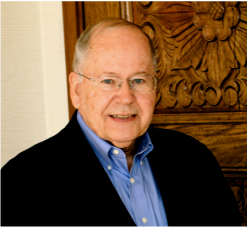 Author Website: RMabry.com Author Facebook: facebook.com/rmabrybooks Author Twitter: twitter.com/RichardMabry Author Pinterest: pinterest.com/RichardMabry Author blog: RMabry.blogspot.com 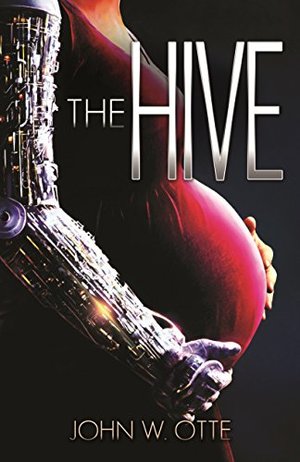 Interview by Brock Eastman Featuring The Hive ON THE RUN TO SAVE HER BABY A pregnant cyborg and a teenage boy fight against intergalactic governments to protect the unborn in this novel from a Christy Award-nominated author. Why is Zain pregnant? She belongs to the Hive, a collective of cyborgs who choose to live apart from the rest of human society. At times, the Hive rent out some of their females to produce tailor-made children for paying couples. But Zain is an engineer, not a breeder. When she finds herself separated from the Hive, she decides to find the person who she thinks ordered the baby. Surely they'll help her find her way home. Matthew "Scorn" Nelson has spent the better part of his teenage years cracking computer systems, causing mischief and havoc wherever he can. But the night of his greatest triumph turned into a painful memory, one he wants to erase. But that night was also his first step on a road to faith. When Zain arrives on his doorstep, Scorn is horrified. What's he supposed to do with a pregnant teenage cyborg? Unfortunately, he'll have to answer that question on the run. Zain's people want to reclaim her and terminate her pregnancy. And both the Ministrix and the Praesidium, two intergalactic governments in a constant state of cold war, want Zain's baby for their own reasons. Will their enemies run them down? Or will Zain find a new Hive for both her and her child? John Otte has a knack for writing creative stories set in futuristic worlds. His vivid settings and well defined characters will pull you in and not let go until you’ve finished. Brock: How did you come up with the idea for The Hive, but also the book prior to it Numb? John: The first book, Numb, was kind of an odd journey. I was first inspired by a short story contest for a now defunct webzine, created the world as part of an unfinished NaNoWriMo project, and had the main character pop into my head while watching Daniel Craig playing James Bond. The rest of the plot kind of snowballed from there. But in terms of The Hive, I can honestly say I don’t remember where I got the idea. I think it’s the result of asking “So what happens next?” I wanted to keep telling tales in the same storyworld as Numb, and so I asked myself, “What would happen next?” Pretty soon, a few threads started to pull together and I had the basic kernel of an idea. Brock: Tell us about the main characters and what makes them unique. John: The Hive follows two main characters. The first is Zain. She is a member of the Hive, a cybernetic society that has chosen to separate themselves from the rest of humanity. She’s an engineering drone. She’s incredibly naïve when it comes to the rest of human society, which makes things extremely difficult when she finds herself separated from her people. Matthew Nelson is the son of wealthy executives and attends a swanky private school where he is, unfortunately, a social outcast. But that’s okay, because Matt also calls himself “Scorn.” He’s secretly a systems cracker, someone who can get inside a computer system and make it do whatever he wants. And he is, quite simply, one of the best crackers ever, responsible for all sorts of crazy mischief. Brock: Share something about them that no one else knows. John: Zain was a major crier. At least, she was in the first draft of the book. I hadn’t realized how often I had her break down in tears until I was reading through it and found myself thinking, “Why are you crying again?” As for Matt, he has a number of really big secrets that very few people know about. The biggest is that he recently became a Christian. In his society, though, that’s technically illegal, so he has to hide it from just about everyone. Brock: Amazing how reading through a story a few times, we begin to see repetition we didn’t realize was there. In three words what is this book about? John: Oh, that’s easy. I can sum it up in three words: “pregnant teenage cyborg.” That was actually the nickname of the book for years. I was at a writers’ conference where I pitched it to an editor. The editor liked it so much, she went around telling people about how one guy pitched her a book about a pregnant teenage cyborg. Pretty soon, all I had to do was tell people, “I’m the pregnant teenage cyborg.” You can imagine the looks that a few people gave me who didn’t know what I was talking about. Brock: Do you outline the entire book before starting, or do you write as you go and let the characters take control of the story? John: I’m more of an outliner when it comes to putting together a story. Actually, I call what I do “stepping stones” writing. I have to envision about half a dozen key moments in the book. Sometimes those moments are huge and other times they’re just little snippets. Whatever the case, once I have those moments, I kind of make it up as I go along between those moments. Brock: I’ve had situations before where I’ll jump ahead and write important moments and then connect the parts, but sometimes I find myself getting bored writing the connecting stuff. How do you believe this story relates to the lives of readers? John: In two ways. First of all, there’s the fact that Zain’s pregnancy is unintended and, from her perspective, unwanted. By writing this story as I did, I hoped I could approach it from a different angle. But second, I also saw a sort of resonance between the Hive and some corners of the modern Christian church. This is kind of my way to not-so-subtly critique it. Brock: What is your favorite genre to write for? John: Science fiction, no doubt. I’ve tried my hand at fantasy and enjoyed it, but there’s just something fun about science fiction that keeps me coming back. Brock: Any certain research required for the book, or is it all from your imagination? John: No, this is all my imagination running wild. I tend to write more space opera than hard science fiction, so I can be a little more fast and loose with the facts. But that doesn’t mean I didn’t do research to help make sure I got the details correct. At one point, I went out and bought a copy of “What to Expect When You’re Expecting” from a Goodwill. When I brought it home, my wife looked at it and asked me, “Something you’re not telling me?” Brock: Ha ha, that’s hilarious. Sounds like something my wife would have said to me. Are you working on the next book in the series? John: In a way, yes. It’s not under contract, but I’m having a lot of fun with it. Once again, I asked myself, “What happens next?” and the result is a story that’s kind of a mix between “Leverage” and “Star Trek.” Brock: Where do you like to write? John: One of my favorite places to write is at my local library. They have private study rooms that are just perfect. I can stay off the internet and get a lot of work done. But my absolute most favorite place to write is at a friend’s house. One of my fellow authors has friends over regularly to work on our projects, as well as provide encouragements and critiques for each other. It’s an eclectic group of authors; we have speculative fiction folks like me mixing with historical romance and romantic thriller authors. But we have a lot of fun. Brock: Are you a full-time or part-time author? John: I am strictly part time, fitting it in when I can. In my “other life,” I’m a Lutheran pastor, so it can be a difficult trick to balance the two. Brock: Considering your other requirements. How long does it usually take you to write a single book? John: It really depends. I’ve been averaging about a book a year right now, although sometimes it takes me a little longer. Brock: When did you realize you wanted to become a writer? John: I’ve wanted to be a writer for as long as I can remember. When I was in fifth grade, I started putting together my own badly drawn comic books. After I realized that I was a really bad artist, I “graduated” to writing really bad Gary Stu science fiction adventures. I’ve tried my hand at fanfiction, movie scripts, and even a stage play that garnered some serious interest from a dinner theatre in Australia. I guess the upshot is that I’m a storyteller at heart and can’t help myself. Brock: What’s your view on e-books and the new independent publishing revolution? John: I was skeptical of ebooks when they first hit the market, but I now own a Kindle that has way too many books on it. I still love the feel of a print book, but I like the way that I can take risks on new authors and stories. As for the way that this is reshaping publishing, I find it interesting to watch. I’m glad that so many people are finding their voices and bringing their stories to receptive audiences. At the same time, though, the quality of stories that have entered the marketplace have suffered somewhat. There’s no shortcut for good fiction. Brock: What was your favorite book as a teen or child? John: Boy, that’s a good question. My family was the terror of our local library because we checked out and returned so many books every three weeks. I loved Encyclopedia Brown when I was a kid. I really got into Star Trek novels when I was a kid (Peter David was my favorite author for those). I’m not sure I could pick just one favorite book. Brock: What is the one author, living or dead, who you would co-write a book with and why? John: Easy question: Brandon Sanderson. He is my current favorite by far. I love the intricate storyworlds that he builds and his stuff is always so entertaining. I think it would be a blast to collaborate with him. Brock: What would your dream writing job be? John: For me, there’s one dream writing job I’d love to have: writing a Star Wars novel. I’ve been a Star Wars fan since I was a kid and ever since they started producing novels back in the ‘90s, I’ve wanted to write one. Maybe someday I’ll get the chance. We’ll just have to wait and see. Brock: What are your hopes for your future as an author? John: I have what can best be described as pipedreams: hitting a bestselling list, having a book adapted as a movie, create something that will someday be featured in Hall H of Comic-Con. But my greatest hope is that I can just keep telling fun stories to people. Brock: Aside from writing, what else do you do in your spare time? John: I’m the consummate geek. I love games, both video games and tabletop games. I’m always on the lookout for something new to play, although I don’t get many opportunities to play them all. Brock: You were a theatre major in college. What’s your favorite stage play? John: The play is called A Company of Wayward Saints and I’ve had the privilege of directing it twice, once in college and once in seminary. It’s an amazing play about a troupe of comedic actors trying to put on a show called “The History of Man.” It’s hilarious and poignant all that the same time. Brock: What’s your favorite TV show? John: I’m a suck for anything that has to do with superheroes, and there are a lot of shows that fit that particular bill right now. My absolute favorite right now is “The Flash.” It’s a funny show with plenty of action and a lot of heart. Brock: Coke or Pepsi? John: Coke. Without a doubt. I figure if I ever have to stop drinking Coke, their stock is going to crater. My congregation is very used to seeing me with a Coke in my hand when I’m teaching Bible study. Brock: Favorite place to vacation? John: Australia. A year after we got married, my wife and I spent two weeks there and we had a phenomenal time. I would love to go back someday. Brock: Favorite color? John: Purple. I have no idea why, but that’s it. Brock: Do you have a favorite Bible verse? John: Far too many. Romans 8:28-39 is toward the top of my list. So are 1 Corinthians 15:51-58 and 1 Thessalonians 4:13-18 (basically anything that talks about the resurrection). Brock: Do you listen to music while you write? If so, what are some examples? John: I like to listen to instrumental music when I write, anything without lyrics. So I’ll use movie soundtracks, stuff like that. Right now, I’m kind of hooked on a group called “Gothic Storm.” Fun music to write to. 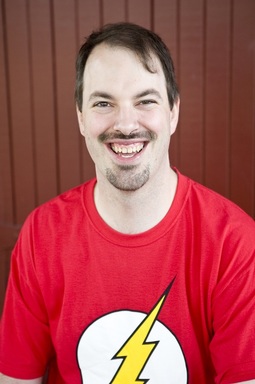 Author Website: JohnWOtte.com Author Facebook: facebook.com/authorjohnwotte Author Twitter: @JohnWOtte 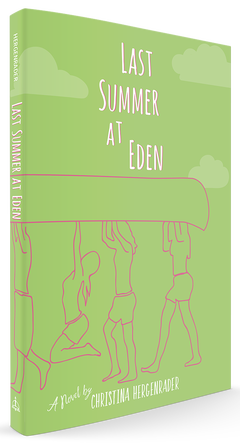 Interview by Brock Eastman Featuring Last Summer At Eden From the moment Poppi Savot steps out of her car and into Camp Eden, she feels at home. This is her dream: a new job in the beautiful southern California hills. Life will be one long songfest around a campfire with s’mores and kids learning about Jesus. Not so fast. Eden isn’t paradise. First, there’s this guy—Jake—who complicates everything. Then, there’s her boss—Bryan—who wastes no time telling her the bad news. There aren’t enough campers. There isn’t enough money. This is Eden’s last summer. She will be unemployed and homeless. But Poppi has hope. Ridiculous, outrageous, faith-driven hope. Still … is that enough? “Christina Hergenrader’s Bible studies are insightful and full of honesty that arouses great discussion among a group of women of faith and her young adult novels are refreshing and full of real characters who are daily challenged with the things of this world, yet use their faith in Jesus to overcome. Such a fun read!” --Jennifer Ward, Librarian at Lutheran South Academy Brock: It's wonderful to sit down and talk with you today, Christina. What was your inspiration for writing Last Summer at Eden? Christina: Camp! For my readers—young adults—there is NOTHING like the experience of summer camp. Everyone remembers the bunk wars, singing around a campfire, the fierce Capture the Flag games, learning about Jesus from cool counselors, and the crazy food. I needed to capture this world for all the camp people out there. Brock: Tell us about the main characters. Who are they? What makes them unique? Christina: The main characters are Poppi and Jake. She is dealing with (or, actually, trying to ignore) her grief from her mom’s recent death. He is on the fast-track to becoming a successful attorney. In radically different ways, they’re both learning life isn’t what they expected, but God always gives them hope for something better. Through it all, Poppi and Jake totally disagree about whether or not Eden should be saved, but they do agree on one thing: they do not like each other. For now. Brock: Give us one fact about each main character that no one else knows. Christina: The main character’s name is Poppi and I’ve always had a very clear image of who she is. This past summer when we picked our kids up from camp, Elisabeth’s counselor was exactly how I imagined Poppi. I considered renaming my character, Sandi (after this counselor). But my editor loved the name Poppi. As for the hero of the book, Jake, he’s named after Jake Ryan from Sixteen Candles. Because, well, EVERY woman my age had a Jake Ryan crush. Brock: In three words, what is this book about? Christina: Camp. Jesus. Love. Brock: Do you outline the entire book before starting, or do you write as you go and let the characters take control of the story? Christina: This is such an interesting question because I actually wrote Last Summer at Eden a few years ago. Then we had a baby and I didn’t have time to finish it. I couldn’t get the story out of my head, and when I came back to it, I had the basic structure of the book, but I needed to polish the story. It took about nine months of writing and re-writing to get it right. But now? I’m so proud of this book. Brock: How do you believe this story relates to the lives of readers? Christina: The story explores so many familiar struggles. The main character, Poppi, is learning to lead, even though she feels completely unprepared. She’s trying to heal from her mom’s death. She finds herself surrounded by people who love Jesus, even though she’s not sure if she trusts Him herself. The world of camp is so familiar to most readers—the bad food, terrible sleeping arrangements, bonding around the camp fire. And, then there’s the cute boy who she spends 24 hours a day working—and arguing—with. So much here that teen readers can relate to. Brock: What is your favorite genre to write for? Christina: I love to write for young adults. The characters feel hurt and joy so deeply, and they change so dramatically. In life, decisions we make during our teen years steer so much of the rest of our lives, and I love capturing this in YA fiction. Brock: Any certain research required for the book, or is it all from your imagination? Christina: Yes! Fantastic research! The book takes place at camp, and I got to spend time at Camp Lone Star, a Lutheran camp that our kids attend every summer. Plus, I got to talk to camp people about their experiences. And wow. That was so fun because camp is an enchanted world that people LOVE to remember. Brock: Were any scenes or characters cut from the book? Christina: Yes, in my first draft of this book, I created a couple counselors who were stereotypical Southern California, and they were obsessed with celebrity culture. They were ditzy and fun. But one of my first readers commented on how much she had looked up to her camp counselors, and how she liked to remember that about them, not see them as shallow. When I heard her passion, I knew that readers would enjoy the story more if I included the kind of superhero counselors so many of us have loved. Brock: What do you hope kids take away from this book? Christina: Hope. Living as a Christian means always having hope that God has something better. This is such an important message for kids, and it’s the overarching message of Last Summer at Eden. Brock: Yes, it is important for not only kids, but everyone to know there is hope for them through Christ. Are you a full-time or part-time author? Christina: I write full-time, but I’m also a mom. I have four young kids, so I’m done writing at 3PM everyday. Then they get home from school and we have to start homework and I shuttle them to their six thousand activities. It’s the perfect balance of in-my-own-head creativity and get-your-hands-dirty hard work. Brock: Soft shell or hard shell tacos? Christina: I’m from Texas where we eat some form or TexMex three times a day. I’m not kidding. Today I had migas for breakfast, nachos for lunch, and fajitas for dinner. And, in Texas, it’s corn tortillas all the way, amigo. Brock: Do you have a particular drink or food you consume when you write? Like coco, raspberry tea, animal crackers? Christina: I drink hot tea by the gallon when I write. Hot tea is so critical to my day that I’m expecting my husband will soon have some kind of a hot water spigot installed in our kitchen. Brock: Do you listen to music while you write? If so, what are some examples? Christina: Thank you for asking this because YES! Part of my inspiration in Last Summer at Eden was the worship songs. Every one of the 79 chapters is named after a song that campers and counselors would sing around a campfire. I made a playlist of these songs and listened to them until my family never wanted to hear Kumbaya again. Brock: Is this book dedicated to anyone? Christina: This book is dedicated to camp counselors. There is no harder or rewarding job. They literally are on 24 hours a day, wearing clothes that smell like smoke and were washed in an outdoor washing machine, singing and dancing and telling kids about Jesus. They are the living, breathing heroes to the next generation. Also, to two dear friends who both worked as camp counselors. Brock: Do you have a “test” audience? Christina: I read this book to my own four kids, which is one of the single MOST FUN things we’ve done together. The kids loved the book and they would play act as the characters. Talk about surreal. Seeing what parts they loved helped me form the story. When they would drift to sleep during scenes, I knew what to cut. Brock: Be sure to keep an eye out for Last Summer at Eden as it comes out on April 11, 2017. 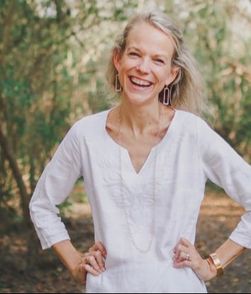 Author Website: ChristinasBooks.com Author Facebook: @christinasbooks Author Twitter: @TinaHergenrader Author Pinterest: TinaHergenrader Author Instagram: @chergenrader 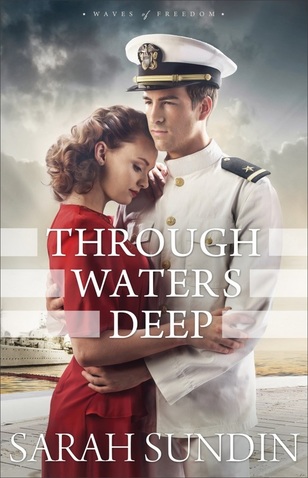 Interview by Brock Eastman Featuring Through Waters Deep It is 1941 and America teeters on the brink of war. Handsome and outgoing naval officer Ensign Jim Avery escorts British convoys across the North Atlantic in a brand-new destroyer, the USS Atwood. On shore, Jim encounters Mary Stirling, a childhood friend who is now an astute and beautiful Boston Navy Yard secretary. When evidence of sabotage on the Atwood is discovered, Jim and Mary must work together to uncover the culprit. A bewildering maze of suspects emerges, and Mary is dismayed to find that even someone close to her is under suspicion. With the increasing pressure, Jim and Mary find that many new challenges—and dangers—await them. “Fascinating history, interesting location, touching romance—Sarah Sundin packs it all in this page-turning story as she takes us Through Waters Deep. Readers are sure to enjoy living this stirring World War II era adventure with Sundin’s characters.” --Ann H. Gabhart, author of Love Comes Home and The Innocent Brock: How did you come up with the idea for the Waves of Freedom Series? Sarah: When I was doing research for my other World War II novels, I noticed some little-known historical tidbits. In 1941, before Pearl Harbor, U-boats sank a US destroyer, damaged another, and sank five American cargo ships. Meanwhile, Americans argued bitterly—was it more dangerous to join the war or to allow the Axis to triumph? I thought this would be a fascinating setting for a story. Brock: Tell us about the main characters. Who are they? What makes them unique? Sarah: Ensign Jim Avery is an American naval officer assigned to a new destroyer. He’s easygoing and congenial—but he finds his “float with the current” ways may not be enough as the situation heats up at sea. Mary Stirling is an efficient secretary at the Boston Navy Yard, content to stay out of the limelight. When evidence of sabotage is found at the shipyard, Mary is thrilled to have her own mystery to solve—if she can do so quietly, without calling attention to herself. Brock: Give us one fact about each main character that no one else knows. Sarah: Oh, they each have a secret—which is revealed in the novel! Brock: In three sentences what is this book about? Sarah: A country on the brink of war. Two friends on the brink of romance. Three threats to keep them apart. Brock: Do you outline the entire book before starting, or do you write as you go and let the characters take control of the story? Sarah: I’m a huge outliner. I have to know the characters thoroughly before I start, and I have a detailed plot outline as well. However, I do discover things as I write the rough draft, and I let them guide the rest of the story. For me, these are usually smaller details rather than huge plot points, but they always make the story richer. Brock: How do you believe this story relates to the lives of readers? Sarah: Many of us are impeded by our fears or by events from our past that have skewed our thinking. I hope as readers watch Jim and Mary’s struggles that God will work in their hearts in His own unique way. I’m always awed when readers tell me how God used my simple stories to help them grow—often in an area not even addressed in the books! The Lord is amazing! Brock: What is your favorite genre to write for? Sarah: I love writing historical romance, and all my novels have been set during World War II. I find the era endlessly fascinating, with millions of stories. And I just can’t imagine writing a novel without a love story in it—hopelessly romantic. Brock: How many books are planned for this series? Sarah: Three. Through Waters Deep is the first book, Anchor in the Storm will be released in the summer of 2016, and the third book in the winter of 2017. Brock: Any certain research required for the book, or is it all from your imagination? Sarah: Way too much research. Since Jim Avery serves as a gunnery officer on a Gleaves-class destroyer, I had to learn about destroyers, the Battle of the Atlantic, and the US Navy in general. I also ended up reading the 500-page Naval Ordnance and Gunnery Manual from 1944. Oh my. That was when I was glad I took all those physics classes as a chemistry major! For Mary’s end of the story, I learned about the Boston Navy Yard during World War II (now the Charlestown Navy Yard). My favorite research was visiting Boston and exploring WWII-era destroyers. And eating Boston cream pie. Brock: How do you strike the right balance in your book? Sarah: As much as I love research, I remind myself readers want a story, not a history lesson. I allow myself to write in as much research as I want in the rough draft, then I slash and burn when I edit. And my editor slashes still more. Only what the reader needs to know. Brock: Why did you choose to focus on a male and female protagonist? Sarah: I enjoy alternating between hero and heroine. First, it’s fun to watch a romance develop from inside both heads, as they each try to imagine what the other one is thinking and feeling. Second, it allows me to tell two related stories. Brock: Are you working on the next book in the series? Sarah: The second book, Anchor in the Storm, is going through edits at my publisher, and I’m busy writing the third book. Brock: Can you give us a hint at Anchor in the Storm? Sarah: For plucky Lillian Avery, America’s entry into World War II means a chance to prove herself as a pharmacist in Boston. She loves the wartime challenges of her new job but spurns the attention of society boy Ens. Archer Vandenberg, even if Arch is her brother’s best friend. As Arch’s destroyer battles U-boats along the East Coast in the darkest days of the war, Lillian uncovers a black market drug ring. Arch’s efforts to aid Lillian’s investigation and to win her trust fling them both into danger—from torpedoes, drug lords, and opened hearts. Brock: Do you plot or outline the entire series before you begin writing, or do your books take on lives of their own? Or is there a combination? Sarah: My publisher required a long synopsis of each book in the series before they gave me a contract, so I did have to think through each of the three stories. I didn’t mind. Although each novel stands alone, the main characters appear in each novel, so I wanted to know them well in advance—and know where they were going. In Through Waters Deep, this helped me give intriguing (I hope!) hints about the rest of the series. Brock: How much leeway do you gives yourself with facts in a Historical genre? Sarah: I try to stay as close to history as possible. However, since I use fictional characters, I automatically alter history. For example, in Through Waters Deep, Jim sails on a fictional destroyer, to allow me to create a fictional cast of characters. Although the adventures of the USS Atwood are imaginary, I based them on actual incidents involving destroyers at the time. Brock: Where do you like to write? Sarah: I’m blessed to have my own office now. I have a lovely L-shaped desk with cupboards for all my binders. When my kids were younger, I did a lot of my writing on-the-go—on the sidelines during soccer practice, in the karate studio, the dentist’s office—wherever I could. As our nest is emptying, I’m able to spend more time at my desk. Brock: Are you a full-time or part-time author/writer? Sarah: Both. I work full-time as an author, more than forty hours a week. But I also work one evening a week as a hospital pharmacist, because we have kids in college and pharmacy pays! Plus, I worked hard to get that degree, and I can’t bring myself to give it up quite yet. And I do hear fascinating stories working in a hospital… Brock: How long does it usually take you to write a single book? Sarah: For the Waves of Freedom series, I’m on a nine-month schedule, faster than the year I’m used to. That means two months for character and plot development, five months for the rough draft, and two months for editing—with interruptions for publisher’s edits for earlier books and publicity for new releases—and life. Brock: When did you realize you wanted to become a writer? Sarah: January 6, 2000. How’s that for exact? Like all bookworm little girls, I entertained a brief fantasy of becoming an author, but I shelved it with my ballerina fantasy and my Olympic figure skater fantasy. I loved science, so I became a pharmacist, a career that allows for flexible hours. In 2000, my kids were little, and I was loving my stay-at-home mom/on-call pharmacist life. Then I got slammed with a story idea—in a dream!—that wouldn’t let me go. I had to write it. So I wrote it. Now I’m addicted. Brock: Coke or Pepsi? Sarah: Diet generic cola. We’re cheap. I do prefer Diet Coke to Pepsi though. Brock: Soft shell or Hard Shell tacos? Sarah: Soft. I’m from California. We can be snobby about such things. Brock: Favorite place to vacation? Sarah: Anywhere! I love to travel. We had some fun years when my husband traveled a lot on business, and we were able to use his frequent-flier miles to take the kids to England, Germany, France, Italy, Australia—and Boston too. Brock: Favorite season? Sarah: Autumn! I love the crisp weather, the colors, and the school supplies. Brock: Do you have a particular drink or food you consume when you write? Like coco, raspberry tea, animal crackers? Sarah: Coffee in the morning, tea in the afternoon—hot in the winter and iced in the summer. Today I’m drinking iced green tea with blueberry and pomegranate—no sugar. I told you I was from California. Brock: Favorite color? Sarah: Blue. Brock: Favorite pasta dish? Sarah: I love trying new pasta dishes, but I have a lifelong fondness for a good old-fashioned spaghetti with meat sauce. Brock: Do you listen to music while you write? If so, what are some examples? Sarah: Music distracts me when I write. I sing or hum or want to get up and dance. Ironically, I’m not distracted by the noise of a busy household—or soccer field or karate studio. 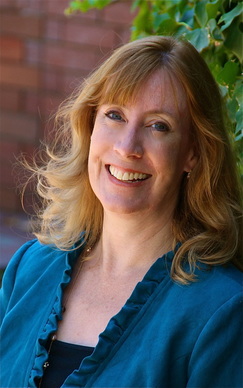 Author Website: SarahSundin.com Author Facebook: http://www.facebook.com/SarahSundinAuthor Author Twitter: http://twitter.com/sarahsundin Author Pinterest: http://pinterest.com/sarahsundin 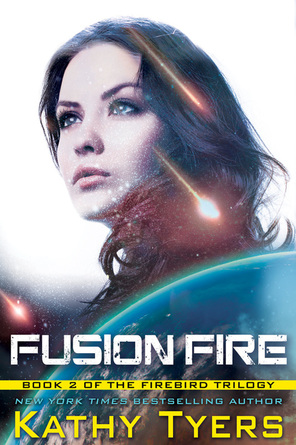 Interview by Brock Eastman Featuring Fusion Fire A New Life for Lady Firebird Forced to forsake her royal heritage, Lady Firebird now faces new and powerful enemies. Firebird is pregnant with twins when her new husband, Brennen Caldwell, is left as the only heir to ancient messianic prophecies. Meanwhile on another world, Firebird’s sister defects to the enemy camp and is made a prisoner. Brennen’s superiors ask him to try to rescue her, and Phoena’s desperate husband travels light-years trying to enlist Brennen’s aid. But Brennen is not tempted to comply… until a divine dream sends him exactly where he does not want to go. “Sweeping drama in deep space… a plot filled with action and intrigue. Thought-provoking without being preachy.” —Moody Magazine Brock: I'm honored and excited to interview Kathy Tyers; a pioneer and champion for the Christian Science-Fiction genre. If not for her development of the genre, my own series might never have been published. Kathy, how did you come up with the idea for the Firebird series? Kathy: During the summer of 1983, the third Star Wars movie was released and the U.S. Air Force Thunderbirds came to town. While working in my vegetable garden I tried to imagine a sequel to “Return of the Jedi,” and one night I stayed up feverishly writing down notes. The first draft of that novel was unpublishable fan fiction—but I joined a writers group and started learning the craft, replacing all the copyrighted material with my own ideas and characters. On a note of delightful irony, ten years and four novels later I was asked to write a Star Wars novel that took take place during exactly the time period I had imagined that summer in the vegetable garden. Brock: It’s neat to see how God works things out. We’ll talk about Star Wars later. First, though, tell us about the main characters in Fusion Fire: Who are they, and what makes them unique? Kathy: Lady Firebird is a wastling, the extraneous third child of a noble family, and she was born only for insurance that the line won’t die out. When her eldest sister’s heirs are born, she is expected to seek a noble death. She trains as a fighter pilot and is sent on a suicide mission. But things don’t work out that way. Brennen Caldwell is the only surviving son of an ancient messianic lineage. He’s a man of deep faith, but because of his ancestors’ experiments in genetic engineering, he is also a highly trained telepath. Recently I read that a reader had called him “swoon-worthy.” Brock: That sounds like high praise. Would you mind giving us one fact about each main character that no one else knows? Kathy: When Firebird was in her early teens, on vacation at the family retreat at Hunter Height, she went out with a group of friends for a day of hunting. She was an excellent shot, but she couldn’t bring herself to pull the trigger, and for the rest of the vacation she was mercilessly belittled by her older sister Phoena. Phoena is one of the main villains in Firebird and Fusion Fire. Brennen isn’t fond of traveling passenger-class or even as command staff. He would much rather pilot. Brock: It’s always fun to hear information the author knows, but has not shared in the story. In three sentences, what is Fusion Fire about? Kathy: Firebird is forced to confront her own sin and darkness, even though she’s a “good” person. It’s also about two rescues, one that succeeds and one that goes terribly wrong. And Firebird and Brennen learn that sometimes, there’s a terrible price for keeping vital secrets. Brock: When writing, do you outline the entire book, or do you write as you go and let the characters take control of the story? Kathy: I’m an outliner. It’s partly because I have a bad memory but also because I have a compulsive need to get things right. The first full draft of one of my books reads like a sketchy outline of the scenes, plus dialogue. I hear my characters speaking long before I can see them. I make several self-editing passes and add “sedimentary” layers of subplot, setting, etc. Brock: This sounds like a great process. Often I find myself having to completely rewrite a section if not well outlined or if my characters get a bit out of hand. As this is a five book series, did you plot or outline the whole thing before you began writing? Kathy: Originally, I had a very different five-book series in mind. Bethany House Publishers ended the series as a trilogy, so I had to telescope Crown of Fire from two book outlines into a single novel. Wind and Shadow and Daystar took shape while I was working on a degree in Christianity and the Arts at Regent College in Vancouver, BC. Brock: How do you believe the “Firebird” series relates to the lives of readers? Kathy: In the “Firebird” series, humanity’s history changed direction even before Christ was born. I think readers have enjoyed following this what-if thread of alternate history, as well as the deepening relationship of two warrior heroes who are deeply in love with each other and their God—but who certainly aren’t the type to settle down and live happily ever after. Not even as parents… but that’s another story. Brock: Kathy, I can probably guess this. But what is your favorite genre to write? Kathy: I’ve written speculative fiction for many years, mostly space opera and hard science fiction. Right now, I think I’d like to try my hand at contemporary fantasy. Brock: Expanding horizons. Would you mind explaining “hard” science fiction for people who don’t know the speculative subgenres? Kathy: That’s science fiction in which the plot revolves around solving a scientific question that’s true to science as we currently understand it. My hard SF novel, Shivering World, is about one character’s quest for healing, but the plot also addresses issues of genetic engineering and terraforming. And since you might ask: “terraforming” is the hypothetical science in which certain uninhabitable planets might gradually be modified to support life as we know it. Brock: Ironic you mention terraforming; because it was a part of the manuscript I just finished up. I think it’s one of the more exciting hypothetical scientific fields to be explored in space exploration and colonization. What is the biblical background or basis for the Firebird series? Kathy: God keeps his promises no matter how long it takes, and his character never changes. Brock: That’s an assurance we can certainly draw hope and find peace from. How many books are in the series? Kathy: Fusion Fire is #2 in a series of five: Firebird, Fusion Fire, Crown of Fire, Wind and Shadow, and Daystar. Brock: Any certain research required for the books, or is it all from your imagination? Kathy: Well, I read a lot about high-performance military aircraft and discussed battle strategies with some folks who had military experience—and I took a ride with an aerobatics pilot, in order to see how some of those maneuvers actually felt. I also studied the “worldbuilding” aspects of astronomy and geology that it takes to imagine believable worlds, and I highly recommend Stephen L. Gillett’s Worldbuilding: A writer’s guide to constructing star systems and life-supporting planets. Brock: Thanks for the recommendation; I’ve put it on my wish list. How do you strike the right balance in your book? Kathy: Oh, I just keep the plot moving and the characters’ interaction (and personal growth) front and center, and try and make sure that every scene, including every viewpoint shift, drives the plot. Those self-editing passes include lots of re-reading, to see if I lose interest anywhere. Having a baddish memory helps with self-editing, because it enables me to read the current version as if I hadn’t read the previous drafts. Brock: This is an issue I often run into. I’ll find myself adding a detail or dialogue, only to find I said the same thing two paragraphs later. What has been your readers’ feedback on the ‘Firebird’ series? Aside from the, “Swoon-worthy” Brennen Caldwell. Kathy: I was deeply honored when the fifth Firebird novel, DAYSTAR, won the speculative fiction Carol Award from the American Christian Fiction Writers for the year of its original release, 2013. But an even higher honor came when a young woman at my church told me she had decided to become a Christian after reading Firebird. She invited me to her baptism. Wow. Brock: That’s an honor and a celebration. I can’t think of a higher praise for your work. After our work is often a vessel for God’s message to be delivered to others. Why did you choose to focus on a female protagonist? Kathy: It’s just more natural for me to write deep, third-person viewpoint from a woman’s perspective. But since these books include scenes from my male characters’ viewpoints too, I tried to write them just as believably. The bottom line, even when you’re writing villains, is to make every character a sympathetic, three-dimensional human being. Or alien, if you have aliens. I don’t write aliens. Brock: I don’t write aliens either; though I do have a blue character (it’s from the minerals in his home.) How did you feel about finishing the series? Kathy: I thought that when I sent off the last book, I would struggle with my usual post-book depression. Oddly, instead I had a sense of job-well-done. It felt like I’d finished something I’d been called to do. Brock: Good to know there is a bright side when I turn book five in. Honestly I think I’ve been dragging my feet on the writing because I don’t want to say, “Goodbye,” to my characters. Is it difficult to be accurate to a Biblical perspective or Biblical facts when writing fantasy fiction? Kathy: Actually, I find it a fascinating part of the creative process. The idea of the same God—with the same attributes—keeping the same promises under very difference circumstances, actually drives the plot. Particularly in Daystar. Brock: Are you a full-time or part-time author/writer? And where do you like to write? Kathy: I’ve done both. Right now I do more editing than writing and find it very satisfying, but I would like to get back to writing more. I write mostly at home, at a computer on my desk. But I have vivid memories of writing under deadline on the road. In the passenger seat, of course. Brock: That’s good you’re not typing and driving, though most laws center on texting and talking. I get car sick if I try to read in the car which is a bummer, because we take two thousand mile roundtrips to Illinois each year. How long does it usually take you to write a single book? Kathy: I’m fairly slow. It takes about four months to complete a first draft and eight months to flesh it out and edit the rough bits. Brock: What is your "how I got published" story? Kathy: After my first novel was rejected by a small press and a major science fiction publisher, I got serious about researching the field. In the science fiction trade journal Locus, on the industry news page, I spotted the photo of a smiling young editor at Bantam Books who had just been promoted in-house from “editor for young readers” to “editor” of their Spectra science fiction line. I sent her the then-current revision of Firebird and got to work on another project. At the World Fantasy Conference later that year, I worked up my courage and introduced myself. To my amazement, she recognized my name on my conference badge and apologized for not having read Firebird yet… “But our first reader really liked it.” I lived on hope for the next few months, until a friend told me that his cousin worked with a major Hollywood producer and suggested I submit the novel for possible movie rights. I’d been told at my writers group that it was unwise to submit a book to two publishers/producers at the same time. My writers group encouraged me to telephone the editor at Bantam Spectra. The editor gave me the go-ahead to pursue film rights… and then she said, “And we’re going to publish the book.” I think there are still handprints on the ceiling of the apartment where we were living. Bantam Books—this was huge! It was my third Bantam editor who telephoned in 1993 to ask if I would like to be a Star Wars author. My response: “Um, let me think about that... YES!!” Brock: What a journey, but what a payoff. Not only did you have your own original work being published, but you were getting to work on a brand that inspired you. And as promised, tell us about your experience with Star Wars. Kathy: People usually ask how I got to write a Star Wars tie-in novel. Alas, it was simply because I had already published four science fiction novels with the publisher (Bantam) that got the book contract from Lucas Licensing. I got a second chance when a different New York publisher (Del Rey) got the Star Wars contract, and—get this—one of the editors who had originally read and rejected Firebird scolded me for not rewriting it and sending it back to her… and she asked me to participate in their “New Jedi Order” series. I can’t tell you how honored I felt. So that was my second Star Wars invitation. Did I have any doubts about writing Star Wars? Not the first time. But the second time, I was already working with Steve Laube, who was at Bethany House Publishers, on the third novel in my Firebird series. I was actually more excited about the Firebird books than Star Wars at that point, so I asked Steve for advice. He laughed like he thought I was crazy, and he told me to take Del Rey’s offer. It was the only time in my life that I wrote two books in a single year. I don’t think I would do it again. The stress was overwhelming. But what a year! Brock: Understandable. I tend to overcommit to projects, but somehow I always finish. Someday I will learn to pace myself. What was your favorite book as a teen or child? Kathy: Lord of the Rings. Nothing else came close. Brock: Who is one author, living or dead, that you would co-write a book with and why? Kathy: Great question. Dorothy L. Sayers, if she’d take me on. I could learn so much from studying her style, hearing about her Oxford education and her other life experiences. And perhaps she’d enjoy dabbling in another genre. I loved her “Lord Peter Wimsey” mysteries, which are set in England between the wars. Hmm, that’s the same era as “Downton Abbey.” Brock: Coke or Pepsi? Kathy: Neither. Give me a cup of black tea with a splat of almond milk, summer or winter. Brock: Favorite place to vacation? Kathy: Most recently: a dude ranch in off season for my autumn honeymoon. We hope to revisit Ireland someday soon. And I try to get back to Vancouver BC every summer to take a spring/summer school class at Regent College. That’s a different kind of vacation, not particularly relaxing (getting an education at Regent College is like getting a drink from a fire hose) but soul-nourishing. Brock: I have always wanted to go to Ireland. I may even write a story about it, just so I can visit the emerald isle for research. Favorite season? Kathy: Spring, especially after a long Montana winter. Seeing the first daffodil sprouts, buds swelling on the fruit trees, and the unfurling rhubarb leaves gives me the grins. Brock: Favorite pasta dish? Kathy: I make spaghetti from white rice pasta, homemade tomato sauce (preferably with homegrown heirloom tomatoes), and ground bison or venison. My recipe blog is comfortablecomfortfoods.com, and I’ve got a fantastic lemon-almond-basil pesto recipe there that’s also excellent on pasta. Brock: Yummy. I'll be turning my wife (who loves cooking and baking) on to your blog. Do you listen to music while you write? If so, what are some examples? Kathy: When I’m writing a rough draft, the right music puts me in exactly the right mood. But I never listen to music when I’m editing, since I need to know that the emotion is on the page, not in the music. When I was writing the Firebird series, some of my favorites were the soundtrack to “The Man from Snowy River,” Tchaikovski’s fourth and fifth symphonies, and a Cincinnati Pops recording called “Victory at Sea and Other Favorites.” Brock: I completely agree, music can certainly put me in the exact right mood. I love the pace and the drama it can create while I write. Kathy, thank you for taking time to share about your “Firebird” series and your writing journey. I know you’ve inspired me. I look forward to whatever future projects you write. 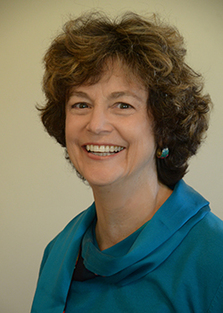 Kathy Tyers is known for her Star Wars Expanded Universe novels - The Truce at Bakura and New Jedi Order: Balance Point. The "Firebird" series, Firebird, Fusion Fire, and Crown of Fire have been available for years. She also have five other science fiction novels, a travel book, and a co-authored book a with a classical guitarist, Christopher Parkening. Kathy lives in south western Montana. Author Website: KathyTyers.com Author Facebook: https://www.facebook.com/kathytyers/ 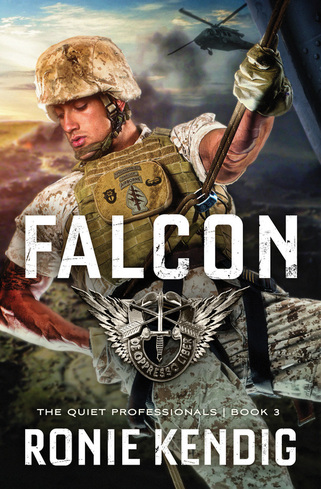 Interview by Brock Eastman Featuring Falcon The day of deadly reckoning has arrived for Raptor team. . . . . . and Warrant Officer Salvatore “Falcon” Russo is just the right mix of guts and grit to lead his brothers-in-arms against the Osiris hacker, Meng-Li Jin. Sal must cut through thick roots of bitterness and betrayal to take down the terrorist—but that means putting the team in the hands of Cassandra Walker. The last time he did that, two of the most important people in his life died. He will not make that mistake again. Cassandra Walker knows three things: she has never loved any man besides Salvatore Russo; he hates her more than life itself; and her mission may destroy any chance of reconciliation. The deeper Raptor digs for truth, the more betrayal seeps from the very fabric of their mission. Friends become spies and turncoats. Enemies morph into strange allies. As the tides turn and Sal rethinks his game plan, he is forced to trust Cassie again. And it might be the last time. Brock: How did you come up with the idea for this book? Ronie: The Quiet Pros series organically grew out of the A Breed Apart series. However, the seed-germ for Falcon’s torment within his story spring-boarded off a true story where a famous individual tragically caused a friend’s death. It was horrible, and I was so heartbroken for all involved. The idea of wanting good things for your friend was so universal, but somehow bringing a friend/loved one into a good situation…then “causing” their death? Wow. Shatter me! Brock: Tell us about the main characters. Who are they? What makes them unique? Ronie: The man focus in FALCON is Salvatore Russo, the “team daddy” of the Raptor team. He’s singularly focused on the mission and making things get done, even if that includes getting the newcomer—his former girlfriend—kicked off the team. Haunted by a mistake with Cassie, Sal wants nothing more than to get her out of his life and stop the terrorists responsible for making minced meat of his team. Cassandra Walker feels the chance to work with Sal and possibly save his team is God’s second chance to make amends with him, the one prayer she has never stopped begging for. Brock: Give us one fact about each main character that no one else knows. Ronie: Sal deals with his inner demons in a very haunting way, one that—in real life—affected my own family (I’ll keep that details under wraps for now, sorry). For a woman seeking amends and forgiveness, Cassie is keeping too many secrets, including her real purpose on the team. Brock: In three sentences what is this book about? Ronie: Sometimes, forgiveness is easy—when it’s given to others. The hardest form is forgiving ourselves. Especially when it costs someone their life. Brock: How do you believe this story relates to the lives of readers? Ronie: I believe forgiveness—especially of ourselves—is universal. There are things each of us have done that we have trouble releasing to the Lord. I’m notoriously hard on myself, and years ago when I went through counseling for abuse, my counselor often admonished me to let things go, to forgive myself. That’s hard to do because I don’t want to keep making mistakes, and sometimes, letting go might feel like “letting myself off the hook.” But if we remain captive to those things, that’s fertile soil for the roots of bitterness to dig deep and penetrate our lives. Brock: How do you strike the right balance in your book? Ronie: In an attempt to stay true to my Rapid-Fire Fiction brand, and knowing readers are expecting an intense ride with raw characters, I work very hard to keep the balance heavier on the suspense side. There will always be romance in my stories—I’m a die-hard romantic, but for me, personally, that comes in smaller doses. Brock: Last year was a crazy-busy year for you. How did you survive? Ronie: Unfortunately, 2015 dipped its toes in that insanity too, with a book due, galleys due, and my daughter’s wedding to plan. The last fifteen months have taught me to be pretty ruthless with cutting stress and learning the “power of no.” We have obligations, but they shouldn’t tether us to stress and fear. Every night I sat down to write Falcon, I would cry (not even joking) because I had nothing left to give. But I leaned heavily on the Lord. I would whisper, “You created the universe in 7 days, surely you [through me] can write a novel in two months.” I leaned into Him, and the words flowed. Brock: What’s Next for Ronie and Rapid-Fire Fiction? Ronie: Since Falcon is the last book in the Quiet Professionals series, I’m looking ahead and very excited about my upcoming project—Oops! Just got flagged. Apparently, that’s still classified information that could cost me my life. Hmm…well, what I can tell you is that there is undoubtedly more Rapid-Fire Fiction (suspense) coming!! And this Fall my first fantasy novel, Embers, will hit shelves. 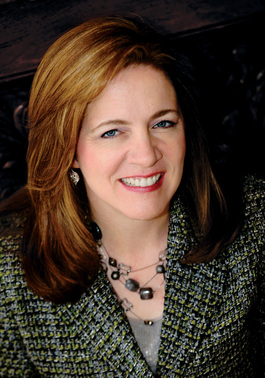 Author website: RonieKendig.com Author Facebook: facebook.com/RapidFireFiction Author Twitter: twitter.com/roniekendig Author Pinterest: pinterest.com/roniek Author Goodreads: goodreads.com/RonieK 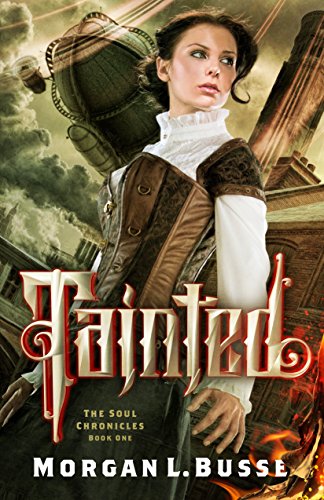 Written by Brock Eastman Featuring Tainted by Morgan Busse Morgan Busse is no stranger to the world of Speculative Fiction, and she’s now delving into a new series and a new sub-genre within Speculative Fiction; Steampunk. Steampunk has always been around, but in the last several years it’s been embraced by several Christian Authors including Evangeline Denmark (Curio), Shelley Adina (Magnificent Devices), JC Morrows (The Order of the Moonstone) and Christopher Hopper (The Sky Riders.) Morgan describes Steampunk as, “A fusion of our history (usually Victorian or western) and science fiction/fantasy.” “So why choose to write Steampunk,” I asked Morgan? “What I love about steampunk is the possibilities. Steampunk isn’t just science fiction or Victorian. It can have magic if you want. Or you can borrow from the time period of your choice without being confined to it or to the technology that existed. So if you want to invent some kind of steam powered cell phone, go for it!” Morgan explained. “And what makes it so different, that you wanted to specifically write Steampunk and not Fantasy like your other series?” I asked. “The thing that sets steampunk apart from other genres (both visually and in story) is the feel. Steampunk has a feel of fantastical inventions, adventure, and science/discovery. Usually cogs, clocks, corsets, goggles, airships, and alchemy are associated with steampunk stories. But you don’t have to have any of those if you don’t want to. Have fun and create your own technology, weapons, and culture,” Morgan said. “What are some unique things or aspects of the genre that you brought into you series?” I asked. Morgan went on to explain, “My own steampunk series borrows heavily from the Victorian era and science. I also had fun inventing things such as mechanical animals, an airship that runs on solar panels, a sniper rifle hidden within a walking cane, and a prosthetic arm that functions as an electric cannon.” She is careful to add though, that “Like any other genre, the story cannot stand on just the genre underpinnings. What connects the reader to the story is the story itself, with characters the reader can relate to. So while you’re having fun inventing your steampunk world, remember to tell a story, one that will grip your readers by the heart and mind.” And that is what she has done with Tainted and her strong protagonist Kat Bloodmayne. Kat is one of the first women chosen to attend the Tower Academy of Sciences. But she carries a secret: she can twist the natural laws of life. She has no idea where this ability came from, only that every time she loses control and unleashes this power, it kills a part of her soul. If she doesn’t find a cure soon, her soul will die and she will become something else entirely. After a devastating personal loss, Stephen Grey leaves the World City Police Force to become a bounty hunter. He believes in justice and will stop at nothing to ensure criminals are caught and locked up. However, when Kat Bloodmayne shows up in his office seeking his help, his world is turned upside down. Together they search World City and beyond for a doctor who can cure Kat. But what they discover on the way goes beyond science and into the dark sphere of magic. Morgan’s talent as a writer weaving a powerful story with deeply developed characters rises to the surface in Tainted. Like her other series Follower of the Word, readers will find themselves drawn in and not ready to leave as the story comes to a close. And her stories always have a deeper meaning that will impact readers long after they’ve finished, so in a way those stories will continue on. I asked her if it was hard to include a Biblical perspective and be accurate when writing speculative fiction. Morgan explained, “I don’t find it hard to be accurate. I am a visual person, and so when I teach, I use visual ideas to help people grasp Biblical concepts. Naturally, that comes into my writing as well. I don’t preach in my stories, I show who God is, what sin is and what it does to us, and what sacrificial love is by telling a story. The great thing about fantasy is you can actually show it.” |
Follow meArchives
May 2024
Categories
All
|
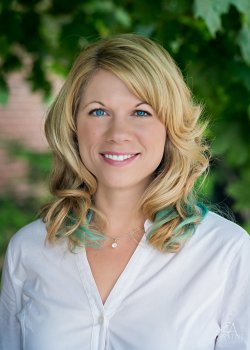
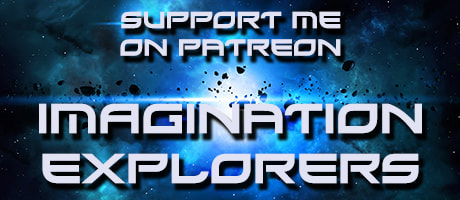
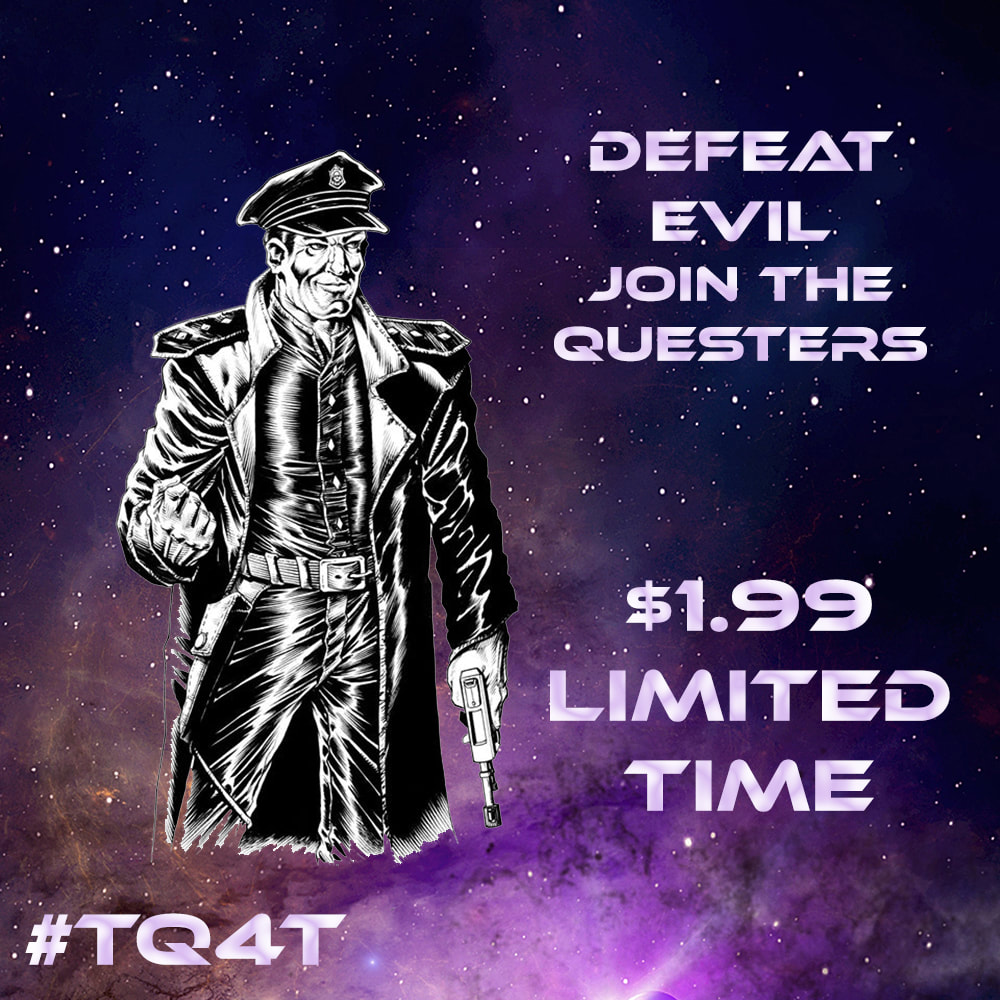
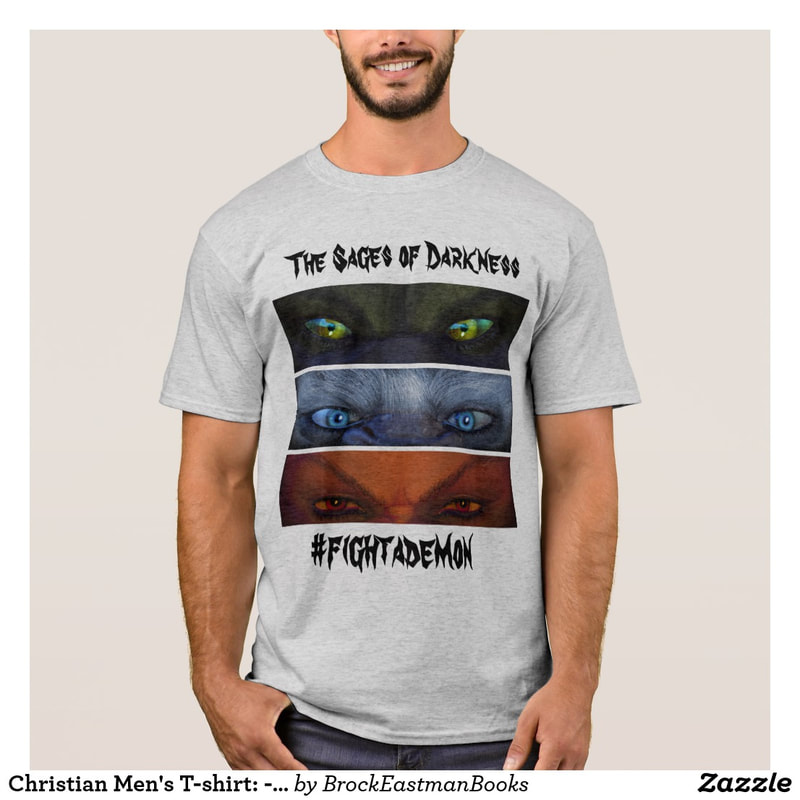

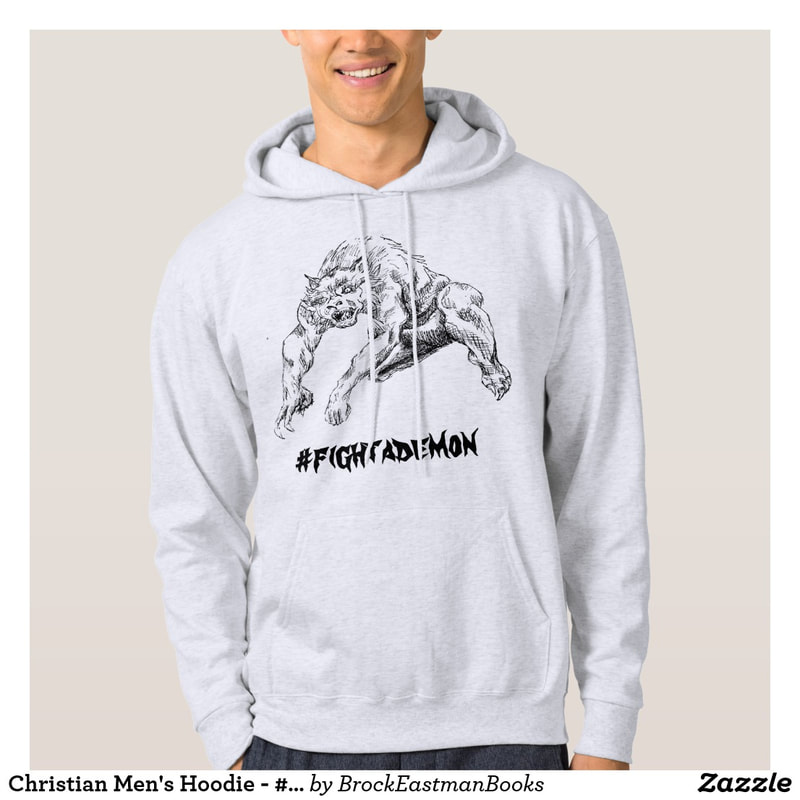
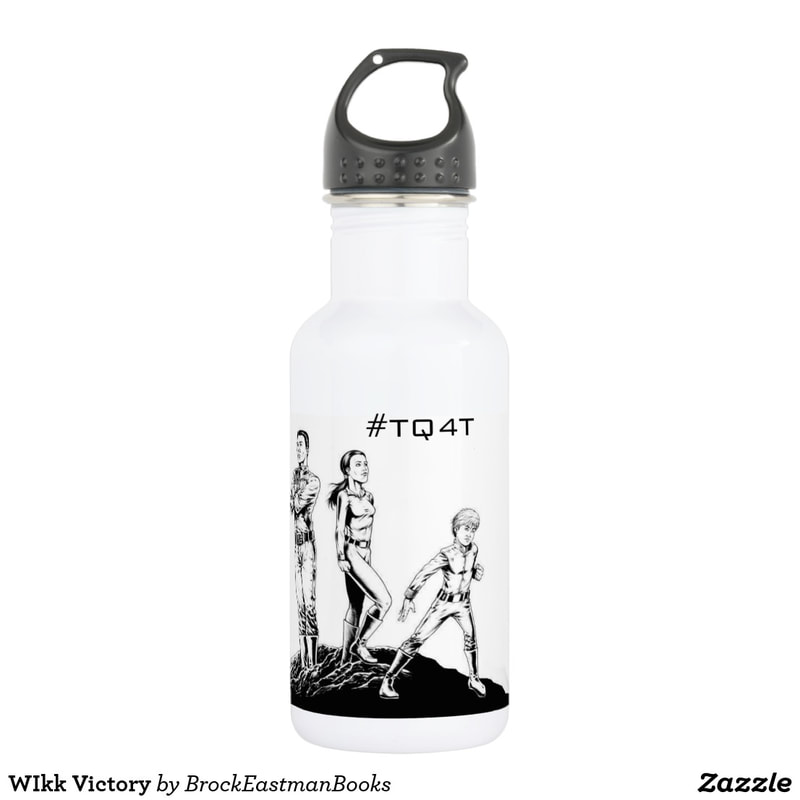
 RSS Feed
RSS Feed